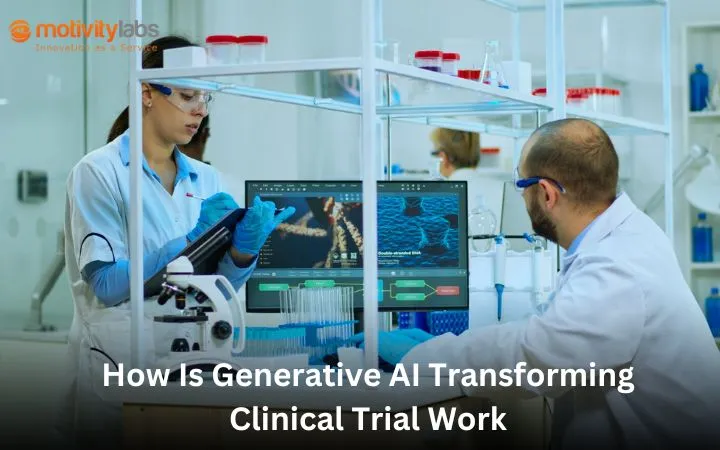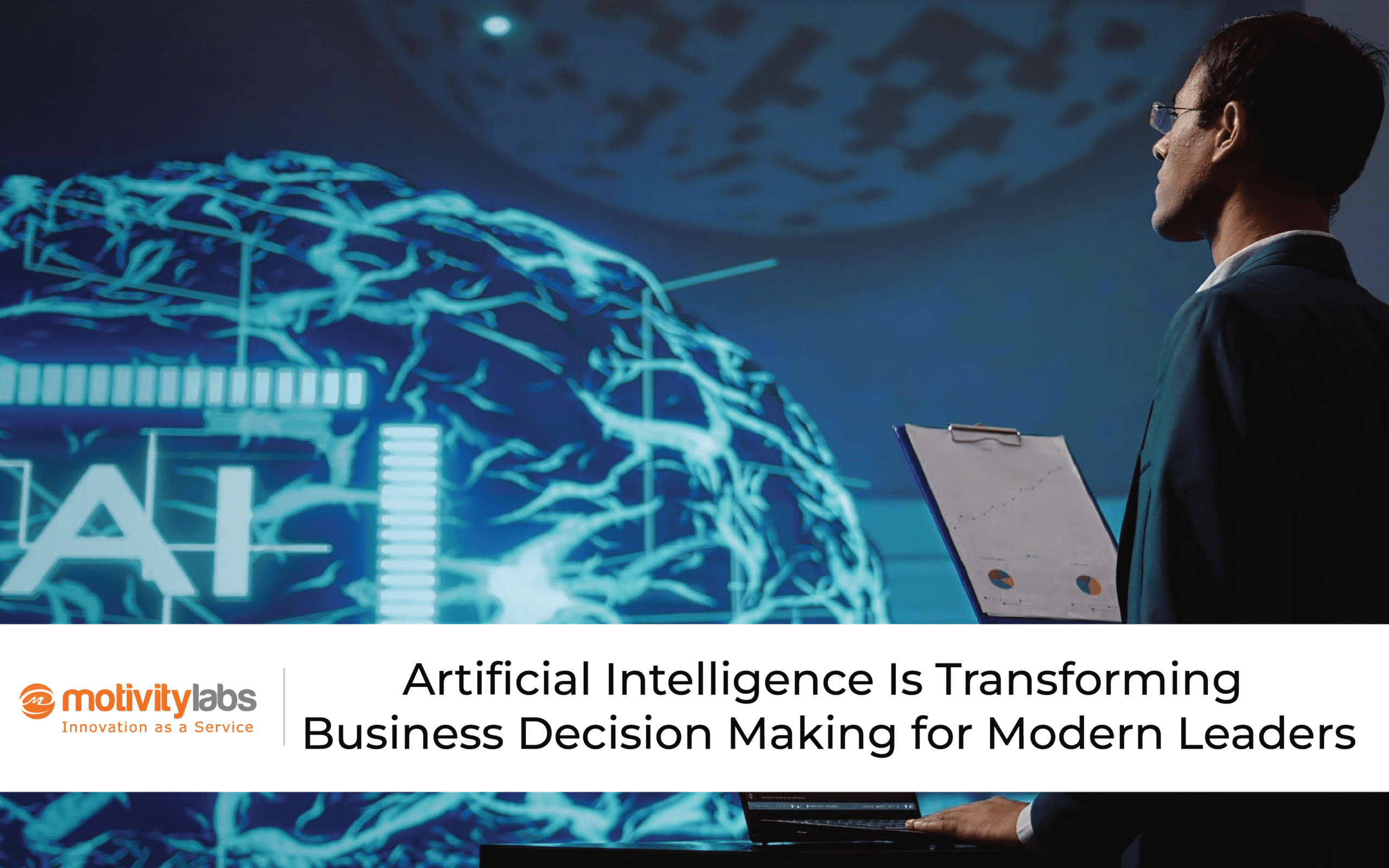Generative AI is revolutionizing industries today. In clinical trials, its impact is profound. Traditional trials involve numerous challenges. These include time, costs, and complexities. Generative AI in clinical trials offers solutions to these issues.
It speeds up processes significantly. Moreover, it reduces costs and errors. In this article, we will explore how generative AI in clinical trials is changing the landscape of clinical research. We will also examine its services, development, and future potential.
Introduction to Clinical Trials
Clinical trials test medical interventions. They assess the safety and effectiveness. Traditional trials follow a set pattern. They involve multiple phases and participants. Trials typically start with early-stage research. Next, they move to larger groups.
Finally, they assess effectiveness on larger populations. This process takes considerable time. Delays in clinical research are common. These delays affect healthcare advancements significantly.
Pharmaceutical companies face significant hurdles. Recruiting patients for trials is tough. Managing data is another challenge. Also, the regulatory approval process is lengthy. These hurdles slow down medical innovations. However, generative AI for clinical trials promises to solve these problems. Its advanced capabilities speed up the entire process.
Generative AI in Clinical Trials
Generative AI in clinical trials is a game-changer. It transforms clinical research significantly. Generative AI uses machine learning models. These models predict outcomes and patterns.
Additionally, AI can generate synthetic data. This data simulates real-life patient behavior. Generative AI accelerates drug discovery. It offers faster patient recruitment solutions.
Clinical research generative AI services offer innovative approaches. These services streamline clinical processes effectively. AI models help in identifying patient subgroups. This helps in better-targeted therapies. Generative AI also reduces the burden on clinicians. Moreover, it enhances decision-making processes.
Generative AI in clinical trials improves data analysis. Trials produce vast amounts of data. Managing this data is challenging. AI algorithms analyze data faster. They help detect patterns and trends accurately.
Generative AI also predicts patient responses. This leads to more precise trial outcomes. These benefits reduce time and costs significantly.
Patient Recruitment and Data Generation
Recruiting patients is a critical step. Traditional recruitment takes months or years. Generative AI for clinical trials shortens this time. It analyzes large data sets quickly. This allows better patient matching in trials. AI identifies eligible participants faster. This results in quicker trial starts.
Moreover, AI generates synthetic data. Synthetic data mimics real patient data. It helps in testing early-stage hypotheses. Researchers can model different scenarios. Generative AI development services allow for virtual simulations. This reduces the need for human trials in early stages. Synthetic data ensures accurate predictions.
AI reduces errors in patient recruitment. Human recruiters may overlook factors. AI scans through millions of data points. This ensures no eligible participant is missed. Also, AI offers insights into patient diversity. Trials often lack diverse patient pools. Generative AI helps balance this equation. It ensures that trials represent real-world populations.
Data Analysis and Predictive Modeling
Data analysis is critical in trials. Clinical trials generate massive data. AI in clinical research makes sense of this data. AI models can analyze complex datasets faster. They extract valuable insights quickly. AI predicts outcomes based on previous data. This predictive modeling saves time.
Predictive modeling is crucial. It helps forecast patient reactions. AI models study patient behaviors. They predict responses to treatments early. This allows for better trial management. Researchers can make adjustments based on predictions. These adjustments lead to more effective trials.
Additionally, generative AI in clinical trials improves data accuracy. It reduces human errors significantly. Clinical trials involve manual data entry. This process is prone to mistakes. AI automates data processing efficiently. It ensures that trial data is accurate. As a result, trial outcomes are more reliable.
Generative AI also helps in safety monitoring. It predicts adverse events before they happen. AI models scan through patient data continuously. This allows early detection of health risks. AI alerts researchers to potential safety concerns. This results in safer trials and better patient care.
Optimizing Clinical Trial Design
Trial design is crucial for success. A poorly designed trial can fail. Generative AI development services improve trial design processes. AI models study past trials. They analyze what worked and what didn’t. This helps in designing better trials.
AI optimizes trial protocols. It identifies factors that slow trials down. For example, AI can suggest alternative testing methods. It reduces unnecessary steps in the process. This streamlining makes trials faster and more efficient.
Moreover, AI helps in adaptive trial designs. These designs adjust based on data. AI models monitor trials in real-time. They offer suggestions for changes immediately. For example, if a treatment shows early success, AI can recommend expansion. This flexibility improves trial efficiency significantly.
Generative AI models also simulate different trial outcomes. Researchers can test various scenarios virtually. This eliminates the need for multiple physical trials. It saves time and resources. Virtual simulations offer highly accurate predictions. These predictions guide trial strategies.
Enhancing Drug Discovery and Development
Drug discovery is a lengthy process. It takes years to develop new drugs. AI speeds up this process remarkably. AI in clinical research assists in identifying potential drug candidates. It screens vast chemical libraries quickly. This saves time during the discovery phase.
Generative AI develops molecular models. These models predict how molecules interact with targets. This helps in identifying effective treatments early. AI simulations reduce the need for laboratory tests. Researchers can test drug interactions virtually.
Moreover, AI identifies biomarkers for specific diseases. These biomarkers guide drug development. Biomarkers predict which patients will benefit. This leads to more targeted treatments. AI helps in personalizing therapies. This results in better patient outcomes.
Generative AI development services also assist in trial simulations. Before testing in humans, AI models simulate drug effects. These simulations assess safety and efficacy virtually. AI reduces the risk of failed trials. It improves the chances of success in later stages.
Reducing Costs and Increasing Efficiency
Clinical trials are expensive. They involve numerous resources. Generative AI for clinical trials cuts these costs. It reduces the time spent on patient recruitment. It also shortens the data analysis process. AI automates many tasks. This reduces the need for manual labor.
AI minimizes failure rates in trials. Failed trials become loss-causing since they take so much time and resources. Generative AI ensures improvements in the design of trials by means of better predictions of the outcome. This is because it is more accurate since the chances of failure are limited. AI guarantees efficiency in spending resources.
Another significant advantage of AI is that it is essential for an improvement in regulatory approval processes. Approval bodies that usually take long data for approval purposes are analyzed with AI. AI makes submissions smooth since the submissions are correct and complete, which enables approvals over time.
AI reduces the time it takes to bring treatments to market. The effects of AI are on the side of the patient as well as that of the pharmaceutical companies. Patients benefit because treatments get approved promptly. Companies will save on the extra trial expenses.
Challenges and Ethical Considerations
Despite its positive impacts, AI has its challenges. Some ethical issues revolve around AI in health care. Data privacy is one significant issue. Clinical trials contain sensitive data of patients. AI models need big data sets for access. Patient’s privacy is of utmost importance.
Moreover, the algorithms of AI may contain bias. The bias can influence the trail terms to be determined. It is, therefore, required that AI be trained on datasets with multiple variables. This saves the chances of biased prediction. Transparency of AI is also necessary. Researchers need to know how AI models make decisions.
Another challenge is integrating AI into existing systems. Many organizations rely on traditional methods. Adopting AI requires significant changes. This includes infrastructure and staff training. Overcoming these barriers is essential for AI’s success.
Future of Generative AI in Clinical Trials
The future of generative AI in clinical trials looks promising. As AI technology advances, its applications will expand. AI will play a larger role in personalized medicine. It will create highly targeted therapies for individuals.
Clinical research generative AI services will evolve further. These services will offer more advanced solutions. AI will assist in every stage of the trial process. From patient recruitment to final approval, AI will streamline operations.
Moreover, generative AI development services will become more accessible. Smaller organizations will adopt AI technologies. This will democratize clinical trials. More institutions will benefit from AI’s capabilities.
AI’s predictive modeling will improve. It will offer even more accurate predictions. This will lead to faster drug development. Patients will receive new treatments sooner. AI’s impact on clinical research will continue to grow.
Conclusion: Generative AI’s Transformative Power
Generative AI is transforming clinical trials. It accelerates processes, reduces costs, and improves accuracy. clinical research generative AI services offer innovative solutions. From patient recruitment to data analysis, AI plays a critical role.
Generative AI development services are shaping the future of clinical research. As AI evolves, its impact will only increase. The future of AI in clinical research is bright. Researchers and organizations are adopting it rapidly. AI’s capabilities will shape the
Generative AI holds the key to faster, safer, and more efficient clinical trials.
Motivity Labs is a company that offers cutting-edge AI solutions-crafted to fit the unique needs of various businesses. Therefore, with experience in creating services related to generative AI, Motivity Labs can help smooth out and perfect clinical trials, enhance operational efficiency in healthcare and beyond, and accelerate innovation for it.


